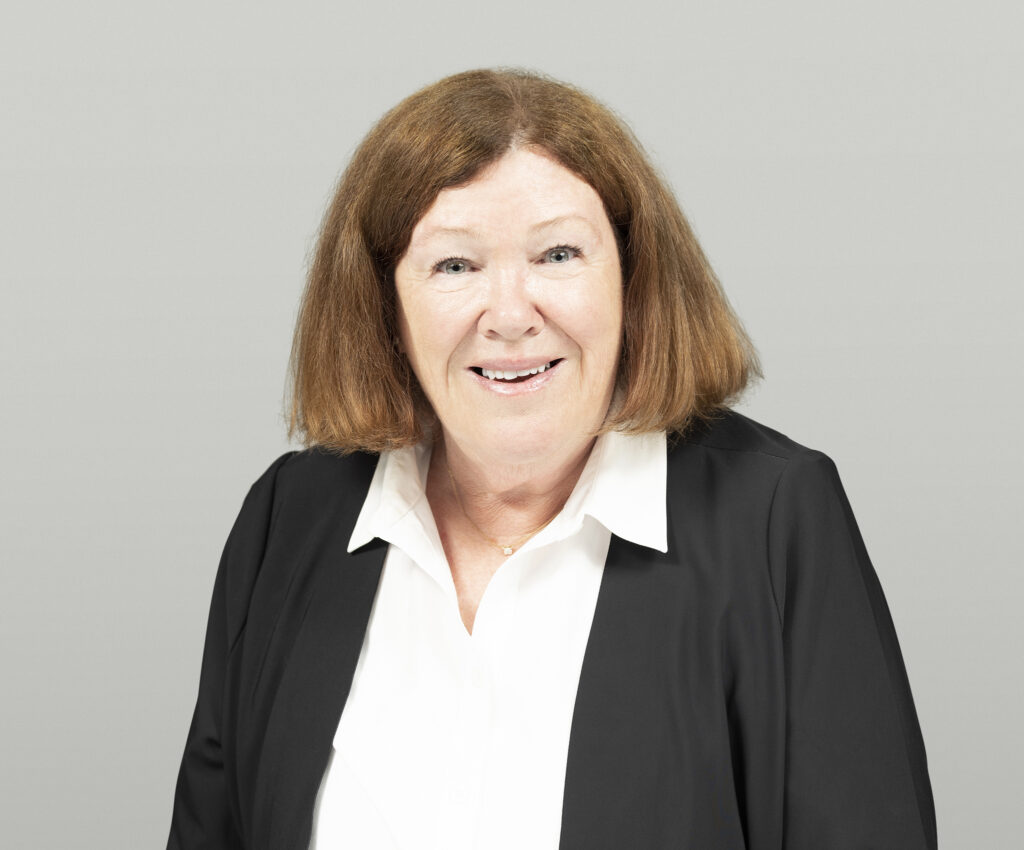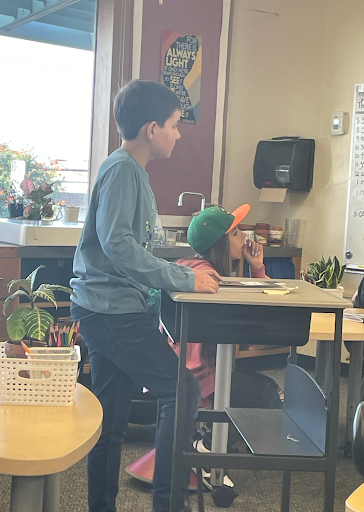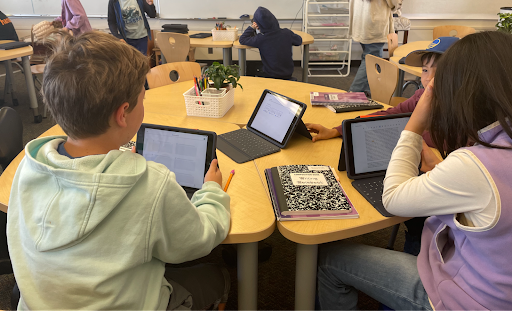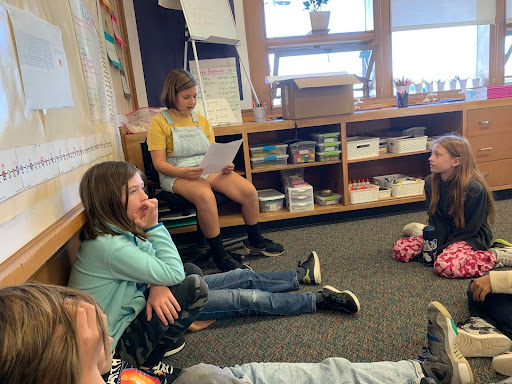Curious about the brand-new Being a Writer, Third Edition? In this interview, get a look at Being a Writer in actual classrooms, with real students and teachers.
Collaborative Classroom takes implementation of our programs seriously. As part of our pre-publication work, we regularly ask key partner schools to teach new programs in order to ensure that our implementation supports are as robust as possible.
In the 2023–24 school year, veteran educators Stacey Abeyta and Sue Wilder guided pre-publication implementations of the new third edition of Being a Writer on opposite sides of the country.
In California, Prospect Sierra School implemented Being a Writer, Third Edition for its fourth grade students under the guidance of Stacey Abeyta. A distinguished literacy leader, Stacey has worked alongside teachers nationwide as a professional learning lead for 21 years.


About Prospect Sierra School
Prospect Sierra is a nationally and internationally recognized school for TK–8 students in El Cerrito, CA. Prospect Sierra embodies several key assumptions in philosophy and daily practice: that learning is the pathway to personal growth; that school should be both challenging and joyous; that school is a community through which students, teachers, and parents develop trust, demonstrate cooperation, show respect, and acquire an understanding of the rights and needs of others; and that diversity, in its many human forms, brings quality and strength to our school.
When reflecting on the early months of Prospect Sierra’s pre-publication implementation of Being a Writer, Third Edition, what comes to mind?
Stacey Abeyta: There was incredible support for teachers, including support for teaching skills and conventions in a way that aligns with the research.
As for the students, we immediately noticed how engaged they were: they loved writing and the lessons better prepared them to revise and edit. The mentor texts played a crucial role in this engagement—they helped the students in idea generation, in learning the different ways they could share their ideas and experiences, and getting a better sense of audience.
Being a Writer makes writing not only enjoyable but accessible—for example, through key scaffolding for multilingual learners, diverse mentor texts, and by providing lesson time to celebrate and amplify the unique writing voice of each student.
Something I always appreciate is Collaborative Classroom’s commitment to differentiation and equity for all students. Being a Writer makes writing not only enjoyable but accessible—for example, through key scaffolding for multilingual learners, diverse mentor texts, and by providing lesson time to celebrate and amplify the unique writing voice of each student.
Prospect Sierra: We were excited and eager to get our hands on the new third edition of Being a Writer. We really appreciate the revisions that have been done, but I do admit we were nervous about the new tech component!
When we told our students that we would be trying out this program before its publication, they were thrilled.
How have students have progressed from when they started this journey?
Prospect Sierra: We’ve seen that students in fourth grade have progressively become better writers after having years of experience with Collaborative Classroom programs, and because of that experience they are, generally speaking, right where they should be in terms of writing.
In particular, we’ve seen that students are more capable with opinion writing now that they have had at least two years previous of writing in that genre with Being a Writer, Second Edition.
For the pilot of this new third edition, students had some challenges at first managing their Google Drive logins, and they took a long time to type their drafts, but for the most part these challenges are being overcome as we go along.
Despite the technical bumps, students were immediately engaged in the subject matter because they were able to write about anything they wanted in the first unit!
Have there been particular highlights so far in the implementation? What challenges have you encountered as you got off the ground?
Stacey: There have been many wonderful surprises. Teachers feel grounded in their practice and have shared several times that they feel like they are teaching writing at a level beyond their practice in the past.
Teachers also shared that they have come to know each student as the unique writer they are. The assessments provide usable, relevant data that they use both to support students and to be able to accurately report to parents.
Teachers feel grounded in their practice and have shared several times that they feel like they are teaching writing at a level beyond their practice in the past.
Students are deeply invested in their writing. With the new digital publishing support, they are more engaged with revision and proofreading and have the skills and strategies to do this work effectively.
Throughout the four units that have been taught so far, students have been able to generate ideas they are interested in developing and build writing stamina. Their conversations with their peers consist of giving meaningful feedback to one another as they work to revise and improve their pieces of writing.
Prospect Sierra: We were happy how comprehensive the opinion writing unit was in the new edition. We had anticipated it needing more structure, but our students were generally successful.
There is a lot more grammar and sentence structure practice in this edition! A lot of it is quite technical, but the students have found it engaging so far.
We loved the extensions, particularly the ones in the personal narrative unit. We were also delighted by how much more we got out of revisions in Google Docs than we expected. It’s been much easier for students (and teachers!) to track their revisions and make more organized edits and suggestions.
Finally, the Author’s Chair has been a lovely way to celebrate the end of a unit.



Stacey: As we look at the students’ writing across the classroom, it is particularly meaningful to me that the topics are wide and varied.
Writers are choosing topics based on their genuine curiosity and experiences in a way that is very unique to Being a Writer. For the opinion unit we had topics ranging from shelter animals to climate change. Each writer has their own unique set of skills and competencies.
Seeing writers find their voice — while having the support they need to write successfully in a genre — is inspiring to me.
You’re about to start the seven-week Expository Nonfiction unit of Being a Writer. What are you excited for as you begin teaching that unit? What are your hopes for students?
Stacey: What I am most excited about in this unit is that writers will be developing a skill set that will transcend to writing throughout the school day.
In the Expository Nonfiction unit, students not only lean into their curiosity, but learn to write an informational report with a partner and then take that information and present it using a slide show format. These skills will support them in writing in social studies, science, mathematics, and so on.
The design of the unit is intentional and will support the student writers as they consider their audience, write with precise language, create presentations that are interesting and visually appealing, and cite the credible sources they are gathering their information and images from.
Prospect Sierra: We hope that students find the topic of inventions inspiring and that they feel a greater sense of responsibility and ownership over their research project. It’s wonderful to see students excited and proud to share their final project.
It will be interesting to see how successful they are in navigating online research while also taking notes online, and how much Google Slides helps them present their work. The teachers are excited to teach more explicit lessons on digital citizenship to the students.
You know the second edition of Being a Writer well. As you teach the third edition, what are you noticing?
Stacey: The consistency! Teachers who have taught the second edition of Being a Writer will easily transition to this new third edition. They will appreciate all that is new, including the skill and convention guidance, the support for revising and publishing digitally, the support for publishing in a slide show format in the Expository Nonfiction unit, and the performative piece in the Poetry unit.
Also, in the third edition, there is much more focused support for multilingual learners. The Collaborative Classroom program developers have done great work around equity; it is ensuring that all writers have access to high-quality writing instruction.
Prospect Sierra: We appreciate how much the new edition of Being a Writer strives to create independent thinkers.
We appreciate how much the new edition of Being a Writer strives to create independent thinkers.
The goal of the program is not to hand-feed the students information but rather to develop critical thinkers and writers — students who can learn from a lesson and then apply it to their own work.
The second edition of Being a Writer did this as well, but we see it even more clearly articulated and defined in the third edition. As always, the trick is implementing the program skillfully!
***
Try It Out!
Experience research-based writing instruction. Download Being a Writer sample lessons today.
